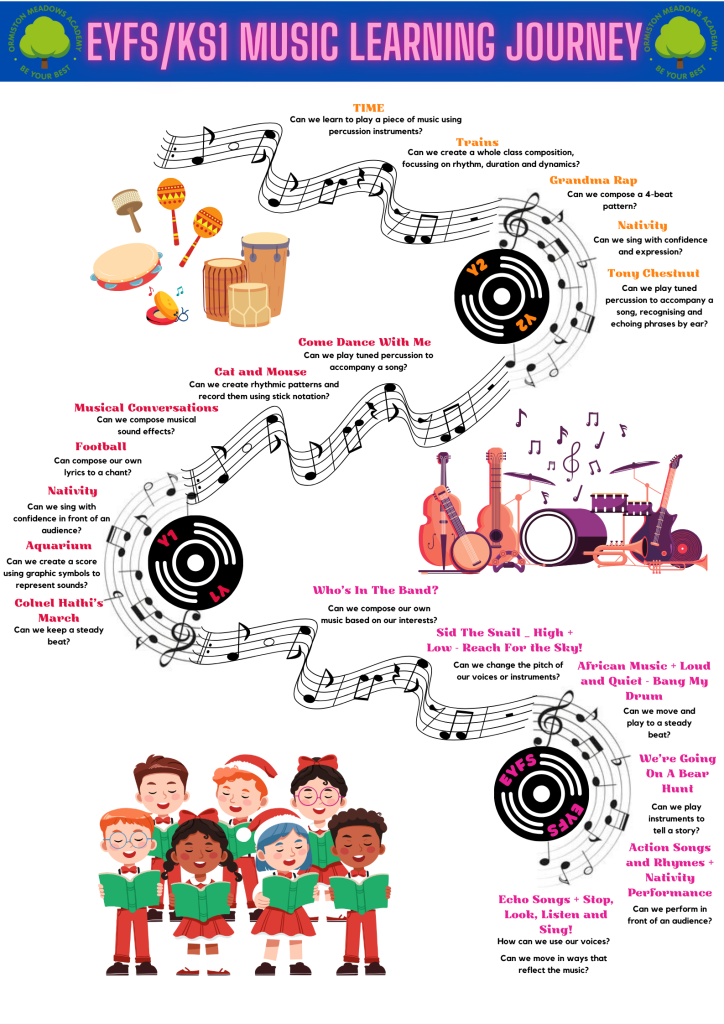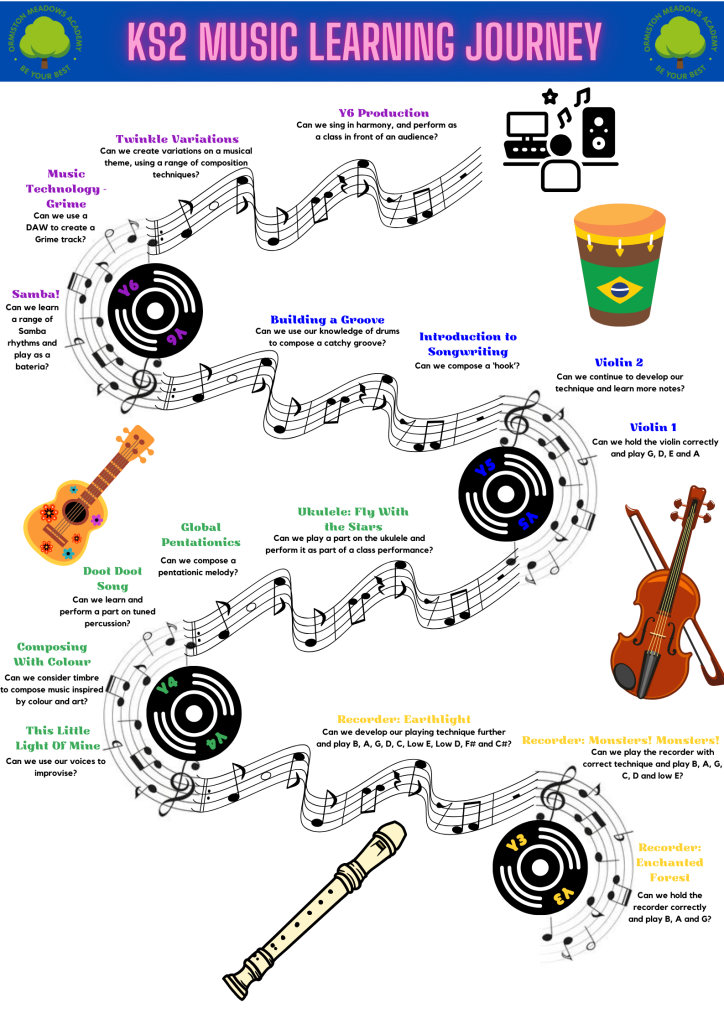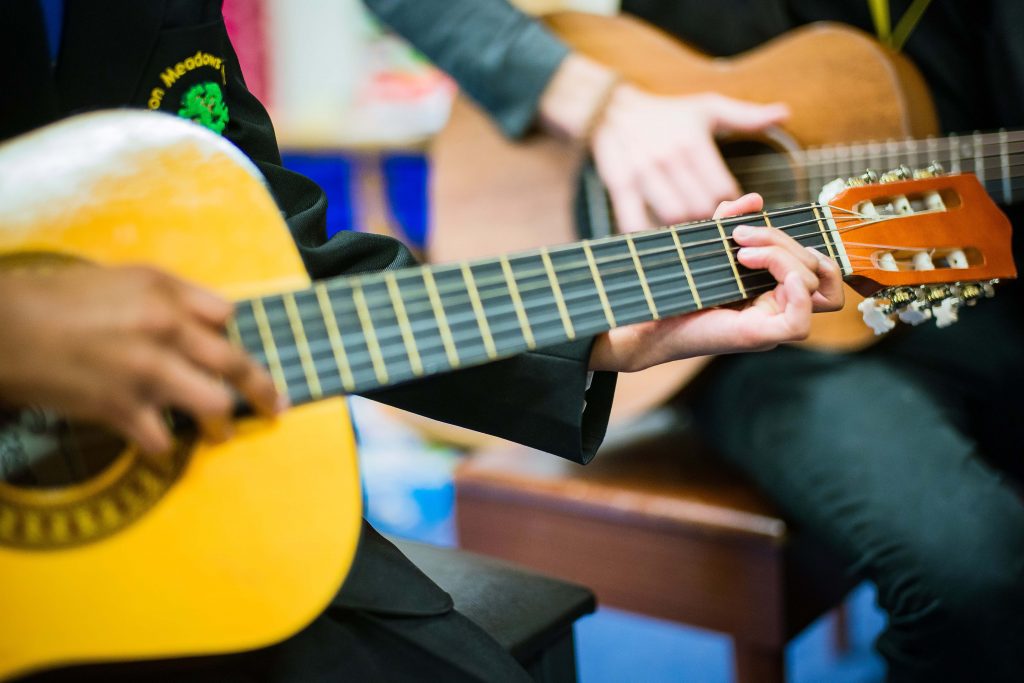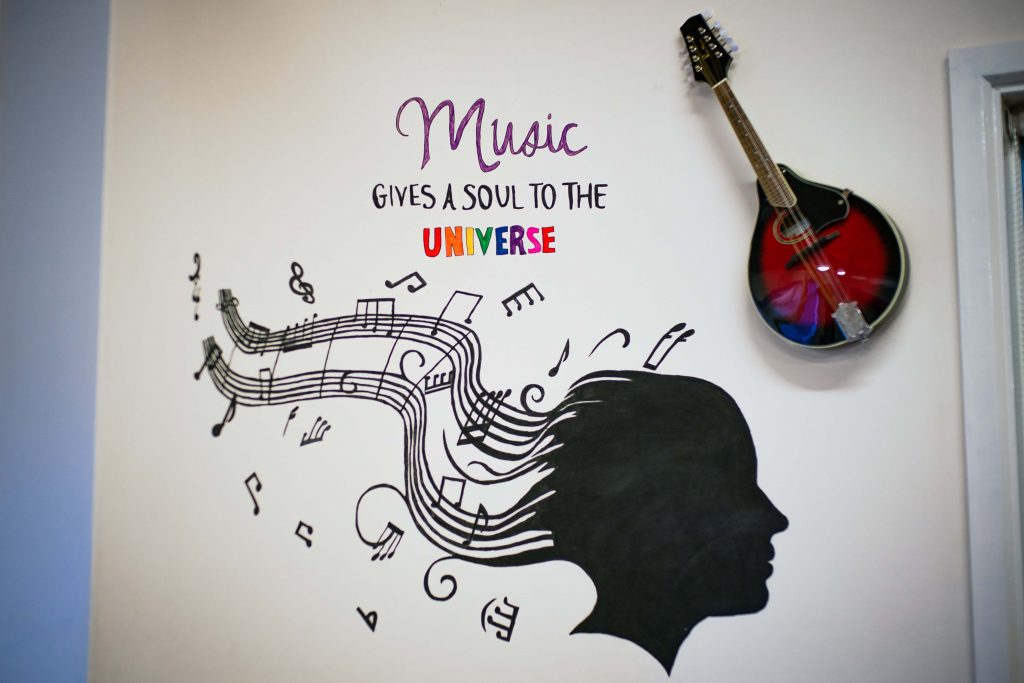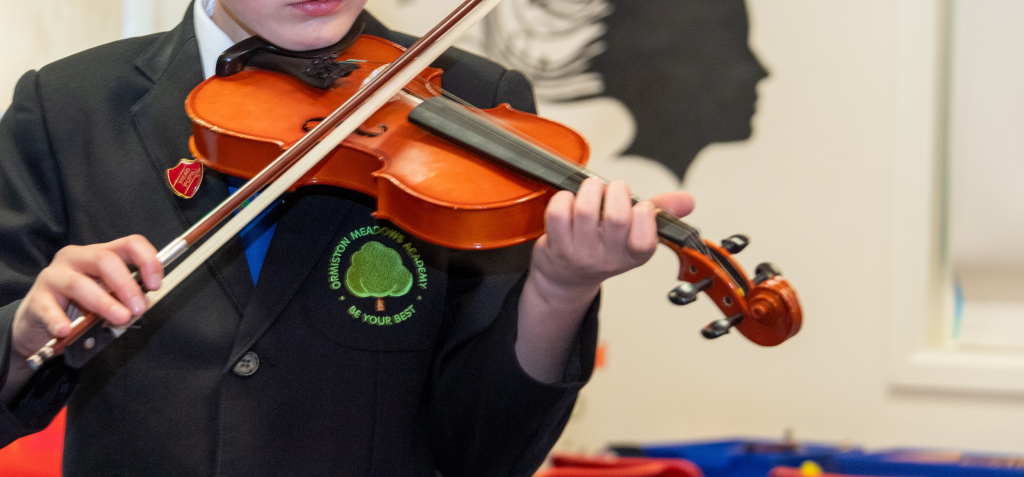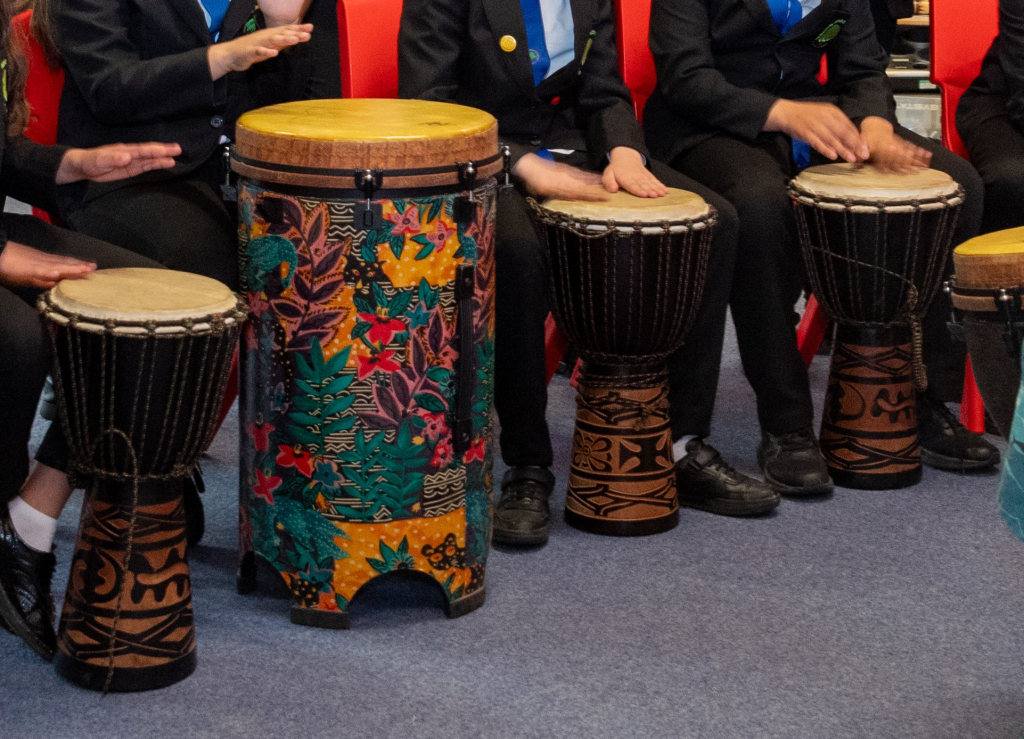Music
“Without music, life would be a mistake” Friedrich Nietzsche
Music is central to life at Ormiston Meadows, setting a beat for the whole school to play in time to. It is woven into daily life here; singing is often used as a tool to further embed learning in the classroom, whilst weekly specialist-led music lessons also offer opportunities for children to re-encounter and re-examine learning from the wider curriculum in a different context. Music is naturally inclusive, but we still ensure that pupils are supported if needed, with reasonable adjustments made where necessary, to allow everybody to do their best.
Music at Meadows is also integral in developing our core values, for example: Respect is fostered through exposure to music from a wide range of places, cultures, and historical periods. Resilience is needed to practise and improve when playing musical instruments. Excellence is achieved through opportunities to perform and show off these skills. These come together to develop pupils with a strong sense of Self-Worth – there is a wealth of research showing the positive impact that singing and music making have on confidence and self-esteem and this is certainly borne out here at Ormiston Meadows.
The music curriculum at Ormiston Meadows sets out to foster a life-long love of music by encouraging self-expression, inspiring creativity, and developing pupils’ sense of music culture. Pupils are exposed to a diverse range of musical experiences designed to develop skills and ignite a passion for music. We aim for our pupils to leave us as competent, reflective musicians who understand the value and importance of music in their own lives and in the wider community. It is our hope that they will use their musical skills, knowledge and experience to feel confident involving themselves in music in a variety of contexts.
Our curriculum aims to develop pupils who:
· Sing and use voices individually and as part of a group
· Feel at home listening to music from a wide range of genres, styles, traditions, cultures and historical periods
· Make judgements about the quality of music and articulate their own personal preferences
· Have an appreciation of a wide range of musical styles
· Use and understand musical language
· Can play at least one instrument with confidence
· Understand the interrelated dimensions of music at an appropriate level and explore how music is created, produced, and communicated
· Understand how music can be written down
· Create and compose music on their own and with others, incorporating musical features and using technology where appropriate
· Take part in musical performances
Transferrable skills developed through music at Ormiston Meadows:
· Teamwork and leadership
· Creative thinking, problem solving and decision making
· Presentation and performance
· Empathy, understanding and citizenship
· Active listening, communication and debate
· Perseverance, resilience and a growth mindset
“Music gives a soul to the universe, wings to the
mind, flight to the imagination and life to
everything.”
